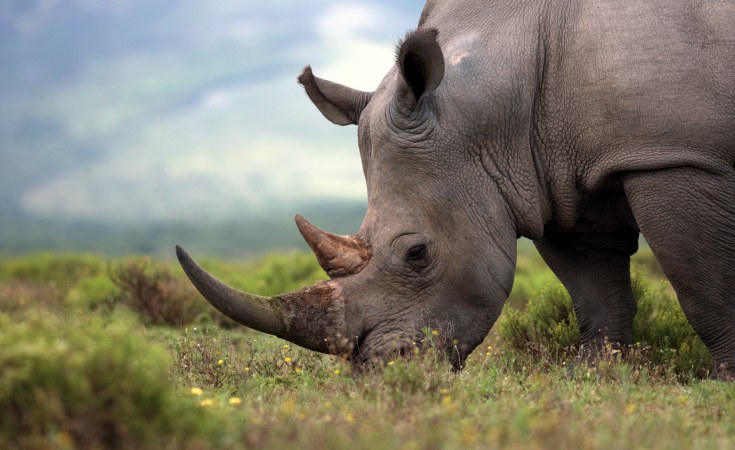The purchase of pachyderm patriarch John Hume's 2,000 white rhinos and his breeding project by African Parks for an undisclosed sum was likely just the tip of the expenditure iceberg. Maintaining the project and gradually translocating the animals over the next decade could conceivably cost up to or even more than R1bn.
When it comes to the economics of megafauna, megabucks are also involved.
Non-government organisation African Parks last week announced that it had bought wildlife tycoon John Hume's 2,000 white rhinos - the world's largest privately owned population of the pachyderms - and the 8,500-hectare property they roam on for an undisclosed sum.
By stepping up the plate, the NGO threw a lifeline to about 8% of the world's rhino population (including all species) after an online auction with a minimum bidding price of $10-million failed to attract a single bid.
At a media briefing on Tuesday at African Parks' offices in the Joburg suburb of Bryanston, CEO Peter Fearnhead said the donors who had come forward to make the transaction possible had requested anonymity and that the amount paid to Hume not be disclosed.
It's probably safe to say that the purchase price was at least R100-million as the transaction required regulatory approval from, of all things, the Competition Commission.
R100-million is the "minimum asset value of the transferred/target firm" that requires such approval. But one reckons that Hume wouldn't have settled for anything less than the $10-million minimum bid he had sought. In other words, R190-million.
The purchase price...


